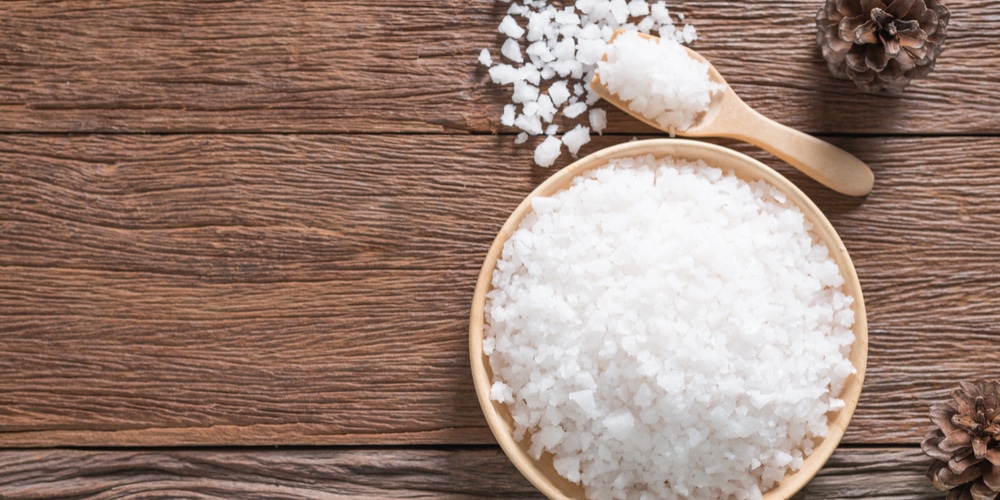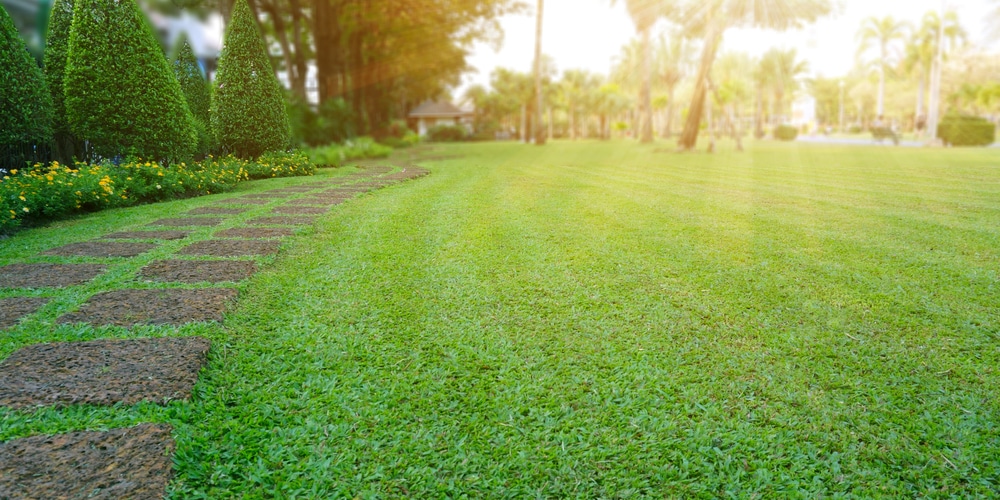During winter, many homeowners turn to rock salt to melt the ice on their sidewalks and driveways. It works by lowering the snow’s freezing point, causing it to melt. While this may not be an issue for concrete surfaces, it can be a problem for your lawn. This article will answer the question, ‘does rock salt kill grass?’
Can Rock Salt Kill Your Grass?
Your lawn is filled with memories – memories of you and your family playing together, hosting summer BBQs, and relaxing on lazy weekends. The lush, green grass is the perfect backdrop for all of your outdoor activities, not to mention a result of all your hard work during the spring and summer.
It’s common for homeowners to turn to salt to melt the ice on their home’s perimeter, but this poses a threat to your lawn.
To answer the question briefly, yes – rock salt can kill your grass. All the hard work you put into keeping your lawn healthy and green can be undone with one heavy application of salt.
How Does Rock Salt Kill Grass?
Here’s why: Rock salt, or sodium chloride, is a desiccant. This means that it causes plants to lose water by drawing moisture out of them.
The salt will cause the grass blades to turn brown and die when applied to your lawn. It only takes a few days for the damage to be visible, and once it’s done, it’s difficult – if not impossible – to repair.
Sodium chloride is also corrosive, damaging metal objects like lawn furniture, fencing, and children’s playground equipment. Plus, it can be harmful to pets if they lick their paws after walking on a treated surface.
Think of your grass as your hair. When your hair loses moisture, it gets brittle, dry, and can eventually break. The same is true for your grass – too much salt will cause it to lose moisture, resulting in brown patches that are difficult to repair.
Aside from causing extreme dehydration to your grass, and other plants, rock salt is also highly toxic. Just like you wouldn’t want to eat a fistful of salt, your grass doesn’t either. A high concentration of rock salt can damage the roots, leaving them unable to absorb the nutrients they need to survive.
Not only that, with the sodium chloride lingering in your soil, using salt makes it also more difficult to grow new grass and other plants.
Grass-Safe Alternative to Rock Salt
Fortunately, there are a few things you can do to prevent damaging your lawn with rock salt.
The first is to use an alternative that won’t damage your grass or other plants. Calcium chloride is a good option as it’s less corrosive than sodium chloride.
It works by creating a brine or salt water solution that can melt ice at lower temperatures. Calcium chloride doesn’t contain the same amount of toxicity as salt, making it a safer option for your lawn.
Magnesium chloride also works well and is less damaging to vegetation. It’s not as effective at lower temperatures, but it’s still a good option if you’re worried about the salt harming your lawn.
Does rock salt kill grass?: Final Thoughts
Rock salt is the last thing you’d want to try if you want to preserve your grass. This desiccant can cause extreme dehydration, damage roots, and make it difficult for new growth.
Many people don’t realize the harm that rock salt can cause to their lawns, and using large quantities can undo all your hard work in keeping it healthy and green.
If you’re worried about the salt damaging your lawn, try using an alternative like calcium chloride or magnesium chloride. These are less corrosive and won’t harm your grass as much as rock salt would.
Related Article: Does Dish Soap Kill Grass?


